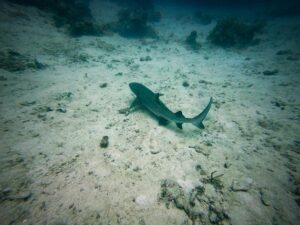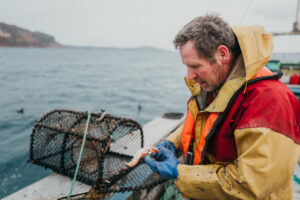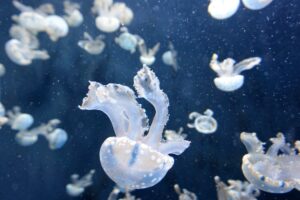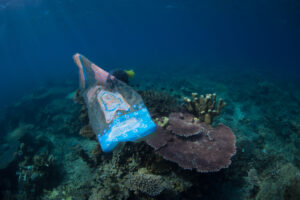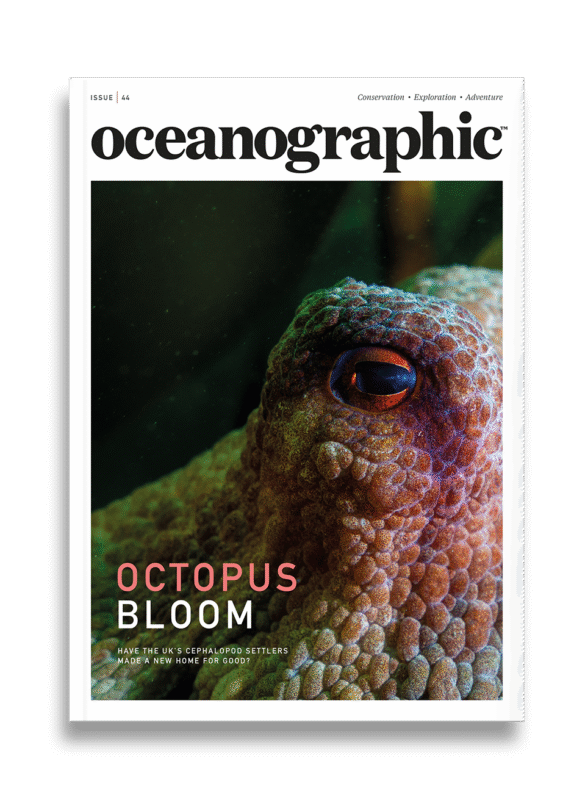"Flourishing" pink sea fan reef found during UK Attenborough shoot
Teeming with marine life, the vibrant and undisturbed pink sea fan habitat was uncovered by accident when researchers from the Marine Biological Association and filmmakers behind Ocean with David Attenborough were in the middle of shooting the cinematic epic.
In what marine scientists have called “an extraordinary moment of chance” during the production of the cinematic feature Ocean with David Attenborough, a vibrant and “exceptionally well-preserved” pink sea fan reef has been discovered off the southwest coast of England.
The find – which has been described by the Marine Biological Association as a “little sanctuary” – goes new lengths to showcase a flourishing underwater habitat that has remained hidden until now.
Teeming with marine life, the vibrant and undisturbed habitat was uncovered by accident when researchers from the Marine Biological Association and filmmakers behind Ocean were in the middle of shooting the cinematic epic. Scientists have championed the discovery as a moment to underscore “the resilience of the ocean and the urgent need to protect its hidden treasures.”
“If one survey can uncover such a gem, who knows how many more treasures are hidden on the seabed?” said Olley Scholey, a director at Silverback Films.
The find was made during a collaborative research project between Dr Bryce Stewart, a senior research fellow at the Marine Biological Association and Associate Fellow at the University of Plymouth, and filmmakers from Silverback Films and Open Planet Studios. After initially discovering the reef by chance with drop down cameras, divers descended onto the reef to film it in high definition.
Through a further collaboration with the underwater robotics company ‘PicSea’, the reef was then mapped in 3D using autonomous underwater vehicles.
“This pink sea fan reef is a stunning and significant find, a little sanctuary,” said Dr Stewart. “These delicate corals grow incredibly slowly and support a rich variety of marine life. Discovering this habitat intact gives us both an urgent reason and a rare opportunity to act now to protect it for future generations.”
The habitat was discovered while the team was preparing to film scenes of the seafloor of Ocean. Although much of the area they carefully surveyed before filming took place had relatively little visible life, they suddenly encountered something “altogether different”; an incredible marine ecosystem that appeared “almost untouched by human activity”.
Sea fans grow only a matter of millimetres every year, and their size indicates that they have been established for a significant period of time.
“We were shocked,” added Olley Scholey. “What we saw on the seabed was a carpet of pink sea fans – an oasis of life hidden beneath the waves. Only by surveying the area did we discover this incredible habitat that is vulnerable to destruction. If one survey can uncover such a gem, who knows how many more treasures are hidden on the seabed.”
The timing of the discovery adds urgency to global conservations about ocean conservation. Hot on the heel of the United Nations Ocean Conference recently held in Nice, France, the revelation of such a rare and pristine marine habitat bolsters the case for stronger protections in UK waters and beyond.
“There is hope – if we properly protect marine ecosystems and manage human activities sustainably, then the ocean can bounce back at an astonishing rate,” said Dr Stewart. “The evidence and insights provided by the Marine Biological Association, alongside our efforts to improve fisheries management an marine conservation, help to inform better practices and influence policies that protect our oceans.”
Efforts led by Dr Stewart are now already underway to secure formal protection for the site. The discovery is just the latest example of how the Marine Biological Association is helping to lead the way in ocean science, discovery, and evidence that supports our understanding and conservation of it. The Association played a vital role in providing the research and scientific advice behind the production of Ocean.
The film itself is an important message for the conservation of the ocean, underscoring the hopeful message that marine ecosystems – when protected – can recover, and often more quickly than anticipated.
Proof of this is in Dr Stewart’s decades-long work with the Community of Arran Seabed Trust (COAST) in Scotland where campaigning resulted in the formation of Scotland’s only No Take Zone and a larger Marine Protected Area off the south of the Isle of Arran. It’s here that research led by Dr Stewart has documented a “remarkable recovery of marine life”, including of commercially fished species such as scallops and lobsters.
“Ocean with David Attenborough shows that when we stop damaging the ocean, it recovers, and often faster than we expected,” said Dr Stewart. “But we need urgent action. Fishing with the wrong gear in the wrong place can be highly damaging, and discoveries like this reef highlight what’s still at stake.”


"*" indicates required fields
Printed editions
Current issue
Back issues

Back Issues
Issue 43 Sir David Attenborough’s ‘Ocean’

Back Issues
Issue 41 Holdfast to the canopy
Enjoy so much more from Oceanographic Magazine by becoming a subscriber.
A range of subscription options are available.


